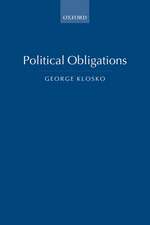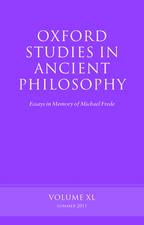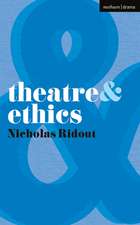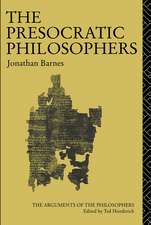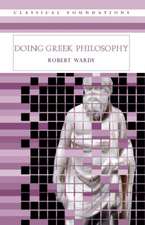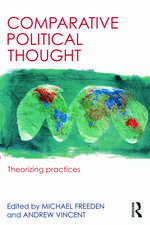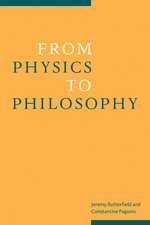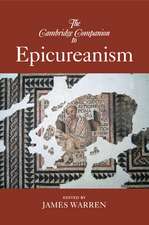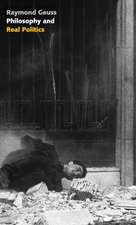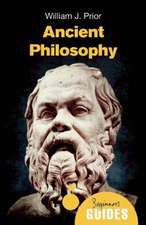Unity and Development in Plato's Metaphysics (RLE: Plato): Routledge Library Editions: Plato
Autor William Prioren Limba Engleză Paperback – 10 mar 2014
| Toate formatele și edițiile | Preț | Express |
|---|---|---|
| Paperback (1) | 324.59 lei 6-8 săpt. | |
| Taylor & Francis – 10 mar 2014 | 324.59 lei 6-8 săpt. | |
| Hardback (1) | 766.12 lei 6-8 săpt. | |
| Taylor & Francis – 10 sep 2012 | 766.12 lei 6-8 săpt. |
Din seria Routledge Library Editions: Plato
- 30%
 Preț: 8421.22 lei
Preț: 8421.22 lei - 13%
 Preț: 294.77 lei
Preț: 294.77 lei - 34%
 Preț: 766.12 lei
Preț: 766.12 lei - 23%
 Preț: 320.36 lei
Preț: 320.36 lei - 38%
 Preț: 766.12 lei
Preț: 766.12 lei - 37%
 Preț: 625.16 lei
Preț: 625.16 lei - 34%
 Preț: 826.15 lei
Preț: 826.15 lei - 54%
 Preț: 417.04 lei
Preț: 417.04 lei - 18%
 Preț: 891.22 lei
Preț: 891.22 lei - 36%
 Preț: 830.28 lei
Preț: 830.28 lei - 38%
 Preț: 765.77 lei
Preț: 765.77 lei - 39%
 Preț: 680.13 lei
Preț: 680.13 lei - 33%
 Preț: 1002.69 lei
Preț: 1002.69 lei - 13%
 Preț: 306.62 lei
Preț: 306.62 lei - 37%
 Preț: 624.79 lei
Preț: 624.79 lei - 36%
 Preț: 625.86 lei
Preț: 625.86 lei - 34%
 Preț: 767.38 lei
Preț: 767.38 lei -
 Preț: 497.96 lei
Preț: 497.96 lei - 35%
 Preț: 1001.43 lei
Preț: 1001.43 lei - 34%
 Preț: 765.77 lei
Preț: 765.77 lei - 18%
 Preț: 1286.46 lei
Preț: 1286.46 lei
Preț: 324.59 lei
Preț vechi: 432.25 lei
-25% Nou
Puncte Express: 487
Preț estimativ în valută:
62.12€ • 64.61$ • 51.28£
62.12€ • 64.61$ • 51.28£
Carte tipărită la comandă
Livrare economică 15-29 aprilie
Preluare comenzi: 021 569.72.76
Specificații
ISBN-13: 9780415751568
ISBN-10: 041575156X
Pagini: 216
Dimensiuni: 156 x 234 mm
Greutate: 0.48 kg
Ediția:1
Editura: Taylor & Francis
Colecția Routledge
Seria Routledge Library Editions: Plato
Locul publicării:Oxford, United Kingdom
ISBN-10: 041575156X
Pagini: 216
Dimensiuni: 156 x 234 mm
Greutate: 0.48 kg
Ediția:1
Editura: Taylor & Francis
Colecția Routledge
Seria Routledge Library Editions: Plato
Locul publicării:Oxford, United Kingdom
Public țintă
General, Postgraduate, Professional, and UndergraduateCuprins
Introduction: the Problem of Plato’s Development. Part 1: The metaphysics in the Early and Middle Platonic Dialogues 1. The Existence of the Forms 2. The Forms as Causes 3. The Forms as Paradigms. 4. Self-Predication 5. The Forms as Objects of Knowledge – the Being/Becoming Distinction 6. The Separation of Forms and Phenomena 7. The Problem of Participation. Part 2: The Challenge of the Parmenides 1. Socrates’ Statement of the Theory of Forms 2. The Population Problem 3. Arguments against Immanence 4. The Third Man Argument 5. The Two-Worlds Argument 6. Conclusion. Part 3: The Response of the Timaeus 1. Being and becoming- the two Worlds 2. The Demiurge and the New Theory of Causation 3. The Forms as Paradigms 4. The Receptacle and Self-Predication. Part 4: The Sophist 1. The Critique of the Friends of the Forms 2. Plato’s Account of Being and Not-Being 3. Paradeigmatism in the Sophist 4. The Timaeus and the Sophist – the Development of Plato’s Metaphysics. Appendix: The Doctrinal maturity and Chronological Position of the Timaeus 1. The Ancient Interpretive Tradition 2. Stylometry. Bibliography. Index
Descriere
Studies of Plato’s metaphysics have tended to emphasise either the radical change between the early Theory of Forms and the late doctrines of the Timaeus and the Sophist, or to insist on a unity of approach that is unchanged throughout Plato’s career. Professor Prior seeks to lay out an alternative approach. Focussing on two metaphysical doctrines of central importance to Plato’s thought – the Theory of Forms and the doctrine of Being and Becoming – he suggests a continuous progress can be traced through Plato’s works. He presents his argument through an examination of the metaphysical sections of six of the dialogues: the Euthyphro, Phaedo, Republic, Parmenides, Timaeus, and Sophist.



